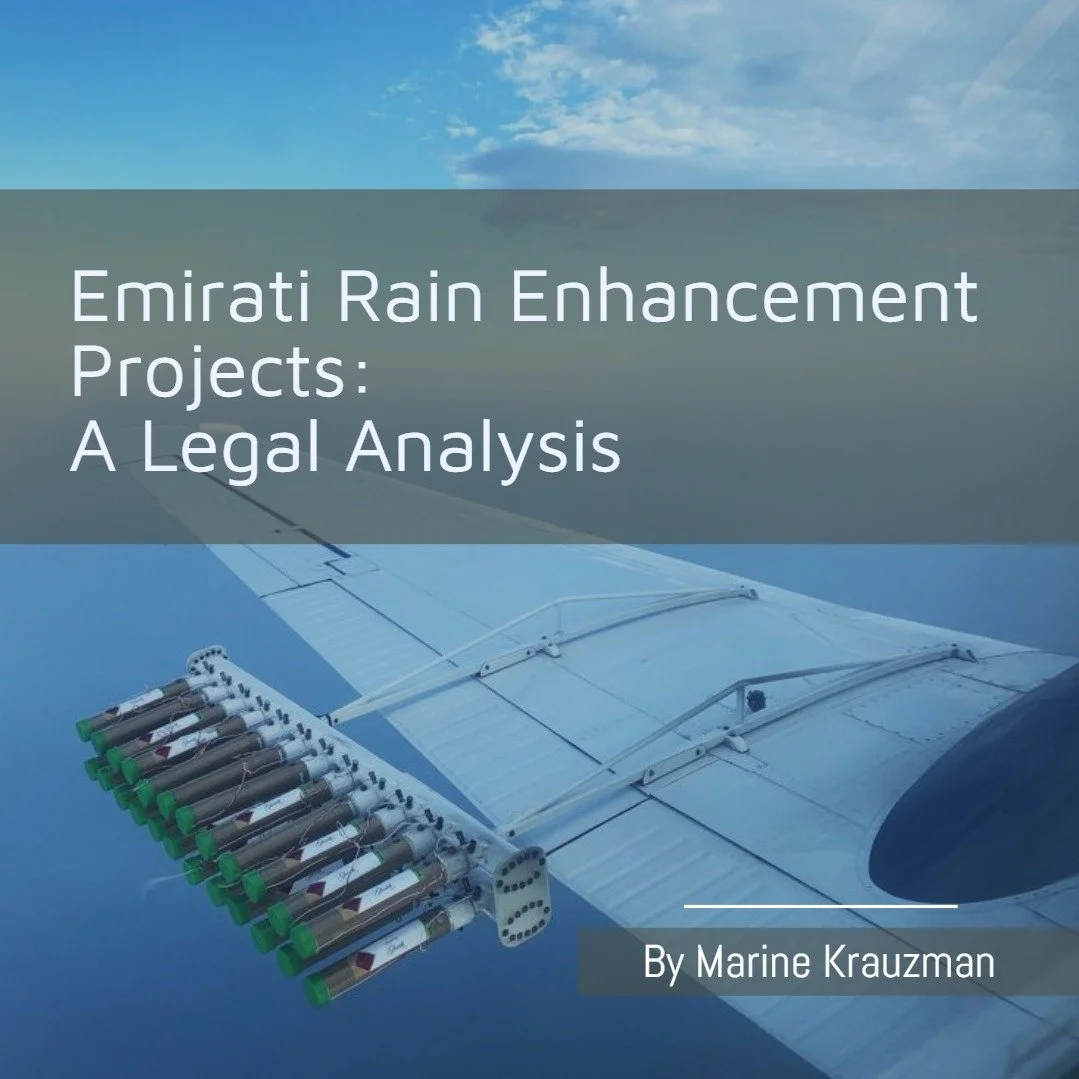The UN Framework Convention on Climate Change, signed in 1992, marked a milestone when climate change concerns were raised globally, and the UN became a powerful speech actor securitizing climate change. In 2007, the UNSC debate on the international security implications of climate change focused on the threat of climate-related conflicts [1][2]. However, military and political institutions constantly frame climate change as a threat to national security and a priority for foreign policy [3] as well as a catalyst for future conflicts [4]. These narratives of danger are caused by the securitization of the environment had shaped policies, favouring technocratic solutions and development interventions in so-called climate hotspots.
Emirati Rain Enhancement Projects: A Legal Analysis
The United Arab Emirates leads the Arabian Peninsula in the implementation of rain-enhancement techniques in a region increasingly challenged by water scarcity. Although cloud seeding is an ancient field of study, it is still poorly understood and controlled, leaving numerous questions unanswered. What are the benefits and limits of these techniques, especially regarding their militarization? To what extent does the state have a right to water contained in the clouds? This article explores the new electrical shock method of cloud seeding of the United Arab Emirates, which compensates for the limitations of older methods, and questions the international regulation of environmental modifications techniques.



